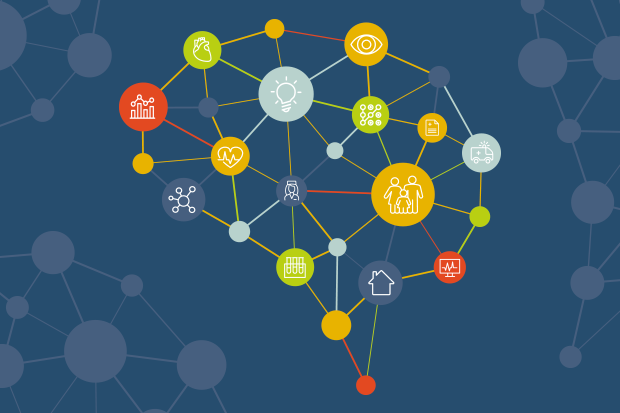
Last week we launched a survey that builds on last year’s State of the Nation report, which was about getting a sense of what technologies are being developed. Now we want to go one step further and understand where they are being developed and what problems they are solving.
Almost 71 years ago the NHS was built on the guiding principles of belonging to all and providing free high-quality care at the point of need. With the advent of data-driven technologies, the opportunity to continue to ensure that the NHS remains one of the leading healthcare systems in the world is something we are embracing.
According to Understanding Patient Data, data-driven technology can be used for:
- individual care and patient safety
- improving diagnosis, treatment and prevention
- planning services and evaluating impact
We have previously said that to unlock this potential we have to cut through the hype. We have to work out what is being developed, how it is being developed and why it is being developed.
With this knowledge we can create effective governance structures (ethical policies and regulatory levers) to support the development of new technologies, ensuring they are safe, effective and ethically developed.
To do this, we have to understand:
- what outcomes do patients, clinicians, commissioners and members of the care community want us to achieve with the use of data-driven tech? (what is the demand?)
- what is the supply of data-driven tech?
That’s why we are launching our State of the Data-Driven Ecosystem Survey, in partnership with the Academic Health Science Network, to get answers to some of the questions underpinning this, such as:
- what outcomes are developers of data-driven technologies expecting to achieve for their identified user/s?
- where in the system do developers anticipate their data-driven technology to be deployed and how far away from that being a reality do they feel?
- where and how are data-driven technology developers accessing data for training, testing, validation and evaluation?
- have the resultant models been: assessed for possible issues of bias, optimised (in terms of architecture, procedures and outcomes) for fairness, designed with explainability in mind?
- what ethical and/or regulatory frameworks (such as the Code of conduct for data-driven health and care technology) are being used to guide the development of data-driven technologies?
Gathering this information will help us progress our ambition to make the UK the best place in the world to develop safe, ethical and responsible AI for health and care. We will know better where to look for examples of excellence, where we need to focus our efforts in improving the system and where we could apply learning technology to improve practices.
This means we will be able to bring together funders, academia, care delivery partners, industry, regulators and government into one place with the intention of creating an evidence-based ecosystem for the responsible application of data-driven technology in the health and care system, underpinned by a culture of sharing, informing, helping, connecting and co-creating.
Please get in touch if you want to find out more:
Leave a comment